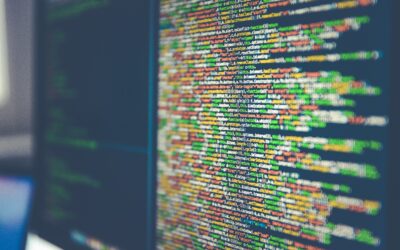If there’s one thing that the pandemic has taught us, it’s the consequences of not being prepared. While nobody could have foreseen a worldwide pandemic shutting everything down for months, many of the systems that failed when COVID-19 first struck were just plain unprepared. People don’t like to plan for disasters. We like to assume that bad things won’t happen or that, if they do, they won’t affect us. But sooner or later, they always do.
That’s why you’ve got to be ready. Without adequate procedures and policies, many businesses had no clue how to let their employees work from home. Supply chain issues, travel bans, stay-at-home orders, shortages for PPE and cleaning supplies—all these things instantly and dramatically hampered businesses big and small. The question on everyone’s mind: “What now?”
Before the pandemic, everything was built on the premise of seamless efficiency. As an IT company that helps businesses grow, we love efficiency—but not at the cost of security. Throw one wrench into the machine—and COVID-19 was one big wrench—and everything grinds to a screeching halt.
Now we know better. You’re ready to secure the future of your business, and you’re going to be prepared for the next big wrench thrown your way.
A New Threat on the Horizon
Obviously, the major obstacle of running a business in 2020 has been—and will continue to be—COVID-19. Nobody needs to be told that. The good news is that cases are dropping in some places, particularly the northeast, and many businesses have been able to open at least partially.
However, experts believe that a second wave is possible before or during the fall. Both the 1918 flu pandemic and the 2009 H1N1 epidemic began with a relatively mild wave in the spring that eventually led to a strong surge in cases in the fall.
A second wave could also be worse than the first. It could conceivably begin with many unknowing coronavirus carriers in many different areas, whereas the first wave began with a very small number of infected people. In the winter and fall, people also spend more time indoors where the risk of transmission is higher.
Considering how bad the first wave of coronavirus has been, the thought that a second one could be coming (and that it could be worse) is terrifying.
An Old Enemy
Pandemic or no pandemic, cybercriminals aren’t stopping their attacks on your business. In fact, they’ve ramped up their campaigns designed to trick you and your employees and to bypass security systems.
Businesses that have operated for years in the comfort of the office have slowly shored up their security practices to prevent breaches and theft. However, when the pandemic forced offices to close, IT teams had no time to train employees how to stay safe doing business on personal devices disconnected from corporate firewalls, strong encryptions, and secure networks. Overnight, cybercriminals had found a whole bunch of low-hanging fruit.
Business email compromise (BEC), a type of social-engineering attack claiming to be from a legitimate source, is nothing new, but it is on the rise. Abnormal Security reports that BEC attacks went up more than 75% in the first three months of 2020 before spiking 200% per week after the coronavirus had taken a firm hold of the U.S. between April and May.
A bad actor can gain access to a company’s sensitive information all by successfully tricking a single employee. Again, this is not a new development, but more criminals are acting now as millions of workers across the globe are exposed. All it takes is one mistake.
What Can You Do?
Now we shift our focus to your business continuity. As we have seen, there are both new and old threats to your company, so you’re going to want to do your best to prepare for them.
One of the most effective ways to defend against BEC attacks and other cybercrime is to educate your employees. Just because you feel comfortable telling a phishing email from an authentic one doesn’t mean everyone in the company does. These attacks can be so devastating—costing companies $1.2 billion in 2018. You need to consider whether your business can survive the sudden loss of thousands of dollars.
If the answer is no, and it probably is, then you should be training your employees how to stay safe online—especially while they are alone working from home.
Floods, hurricanes, blizzards, tornadoes—and yes, pandemics—are the random natural disasters that no one can possibly prevent from happening. We often talk about the first four in terms of physical destruction. Companies want their ass(ets) covered in case they get washed away or crushed, and so they turn to disaster recovery and data backups. When your data is regularly saved and stored securely in the cloud, it makes a traditional disaster less devastating for business continuity.
But as we have written about before, data recovery solutions are effective not only for physical disaster but for online ones as well. When a criminal gets into your network, encrypts your files, and demands ransom (I.e. ransomware), you’re in trouble…unless you have recent backups. In this case, you can simply reboot to a previous state, fix the vulnerability that let the bad actor disrupt your business, and carry on with your day.
The benefits continue. Pandemics have a severely detrimental effect on your ability to keep things running. Not only are remote workers more likely to fall victim to a cyberattack, thus putting the whole company in harm’s way, but any other number of problems could arise. A hard drive could fail, leaving you waiting a long time for a replacement, and meanwhile that data could be lost forever. Alternatively, your tech person could become sick and have to quarantine for two weeks. Anything could happen that would put your work out of commission.
The Next Crisis
The thing about disasters is that we never know exactly what to expect, so you have to prepare for everything. Training your employees and adequately planning for recovery will go a long way towards making the next crisis a lot less painful.
We want to help keep your business running—during good times as well as not so good. You can read more about our disaster recovery and data backup solutions here. We would love to hear from you personally, as well! You can contact us here or by phone at (508) 453-4700. We look forward to earning your long-term business.



